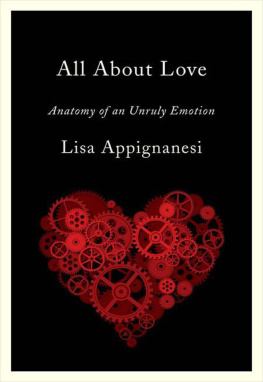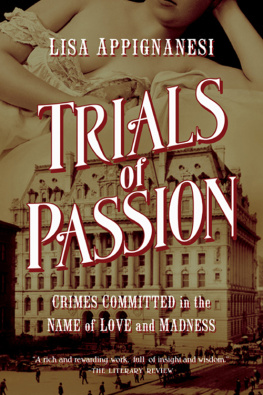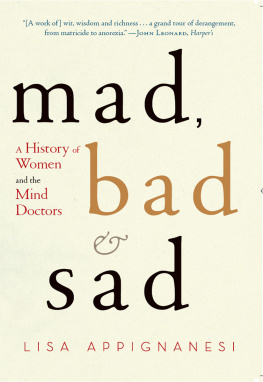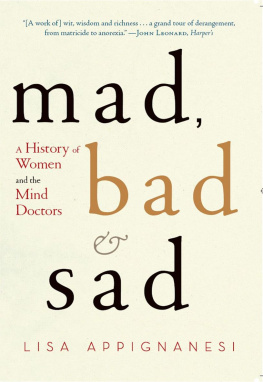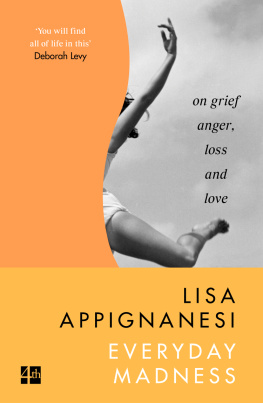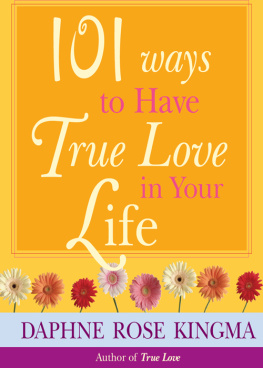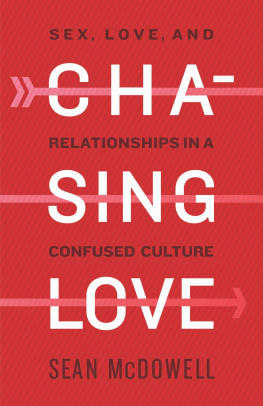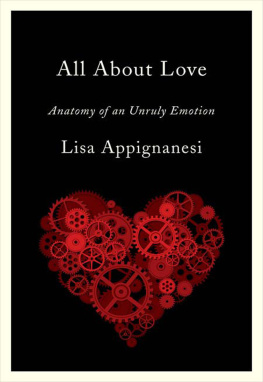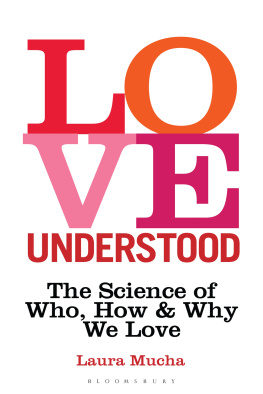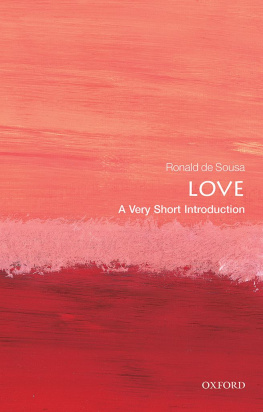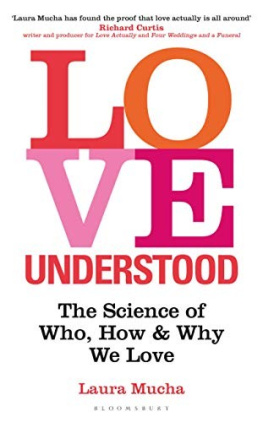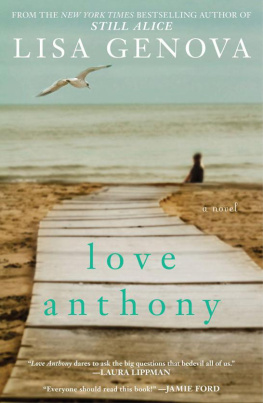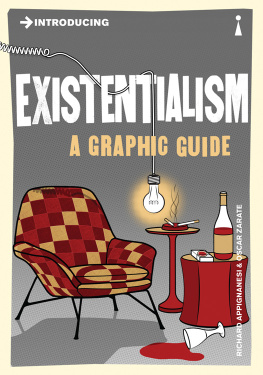Lisa Appignanesi

W. W. Norton & Company
New York London
Copyright 2011 by Lisa Appignanesi
Copyright acknowledgments on page 403 constitute
an extension of this copyright page.
All rights reserved
For information about permission to reproduce selections from this book,
write to Permissions, W. W. Norton & Company, Inc.,
500 Fifth Avenue, New York, NY 10110
Production manager: Anna Oler
Library of Congress Cataloging-in-Publication Data
Appignanesi, Lisa.
All about love: anatomy of an unruly emotion /
Lisa Appignanesi. 1st American ed.
p. cm.
Includes bibliographical references and index.
ISBN: 978-0-393-06945-7
1. Love. 2. Marriage. I. Title.
BF575.L8A67 2011
152.'41dc22
2011006756
W. W. Norton & Company, Inc.
500 Fifth Avenue, New York, N.Y. 10110
www.wwnorton.com
W. W. Norton & Company Ltd.
Castle House, 75/76 Wells Street, London W1T 3QT
To my loved ones and those they love
Contents
Acknowledgements
Over the years I have learned so much from so many on the subject of love that my acknowledgements could extend for the length of this book. I owe a debt to all the novelists, thinkers, commentators and individuals who appear in its pages, as well as to my family and friends. Many, in the course of its writing, have put up with indiscreet probing as well as with long conversations, or consented to more formal interviews. To name even some of them is not enough, but it is the best I can do here. So my thanks for all their help, their ideas, their encouragement extend to Devorah Baum, John Berger, David Borenstein, Judit Carrera, Marie-Noelle Craissati, Maria Duggan, Eva Hoffman, Derek Johns, Helena Kennedy, Hari Kunzru, Hanif Kureishi, Darian Leader, Suzette and Helder Macedo, Giovanni Menegalle, Maxine Molyneux, Jasmine Montgomery, Susie Orbach, Lianna Schwartz-Orbach, Renata Salecl, Gillian Slovo, Martha Spurrier, Deborah Thom, Marina Warner and Lisa Wood.
I owe special thanks to Adam Phillips for his ever stimulating thoughts and conversation. My children, Josh Appignanesi and Katrina Forrester, have been particularly scintillating informants on the ways and waverings of their generation: their subtlety and provocation are a constant inspiration. Since we are all in our own way experts on love, none of the above will necessarily agree with what I have made of my subject.
I am grateful to Monica Holmes, an early and sagacious reader, and to Jamie Martin who helped patiently with the details of footnotes and bibliography.
Lennie Goodings, as ever, proved an ideal editor, encouraging and perceptive. My great thanks go to her and to Clare Alexander, my talented agent, as well as to Angela von der Lippe, my New York editor, whose acuteness and discernment are a constant boon. I am also grateful to Elise Dillsworth at Virago and my copy-editor Sue Phillpott.
And finally, my partner John Forrester put up with my moans and groans about love over the course of the books making. He has been both a stalwart companion and a meticulous reader, making good my lacks and dotting my real and metaphorical is.
Lisa Appignanesi
London, November 2010
PART ONE
Overture: The Riddle of Love
Love is a canvas furnished by Nature and embroidered by imagination.
Voltaire

Where does one start in writing a book about love? Its an emotion or state that casts a bright light on all of life or shadows it by its lack. North, south, east, west, love is both essential and conflictual. It transforms and it destroys. It seems to matter because life matters. Yet seen from the outside, its also plain silly or simply mad. Subject of countless myths, lyrics and stories, as well as philosophical and sociological interrogations, embedded in our ways of thinking and seeing the world, loves manifestations are not only as various as the individuals who experience them, but are different at different points in our lives. Intensely personal, unpredictable, love often seems allergic to generalizations, yet its continuities through history and its commonality also make these inevitable and ubiquitous. So the only place to begin in unravelling some of loves riddles seems to be with the self. And the only point in doing so may be to grow a little wiser in loves ways.
I dont know exactly how old I was when I first became aware of love. Aware enough so that it stirred an emotion sufficiently significant to become memorable, even though its meanings were confusing. Aware of it as a word that stood in for a host of feelings.
I was probably around seven and the memory is linked to a French song. French was my first clearly spoken language amidst all those others that floated through my parents immigrant trajectory, which brought its own traditions of love in train. Like all immigrants they felt alternately ambivalent about these traditions and idealized them, subliminally communicating this to us. In the way of most songs heard or learned by children, the lyrics were only half grasped, but the refrain of this one stayed with me
Il y a longtemps que je taime. Jamais je ne toublierai.
A translation might read:
Ive loved you for a long time. Ill never forget you.
Maybe what imprinted the song within me was the mysterious arc of the refrain: it moved from a past of love through the present and abruptly into a future where, though love is lost, memory and longing are for ever. Maybe it was also the collective embarrassment of raising our childrens voices into the palpably intimate, a region hovering on the forbidden. I clearly recall musing over what it might all mean. Loving, it seemed, stretched back into the mists of a time past and was so significant it continued for ever, tumbling into a vague future of the imagination.

